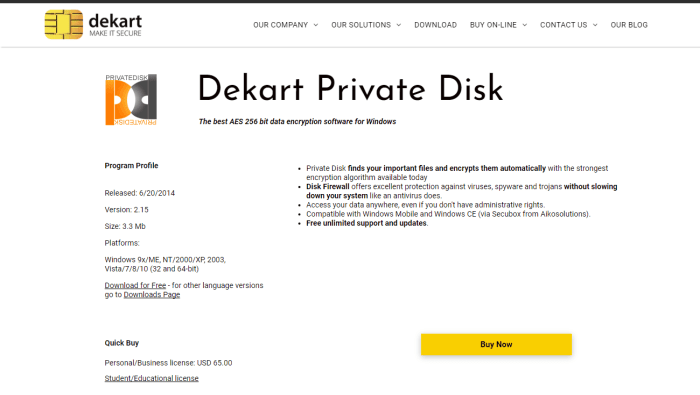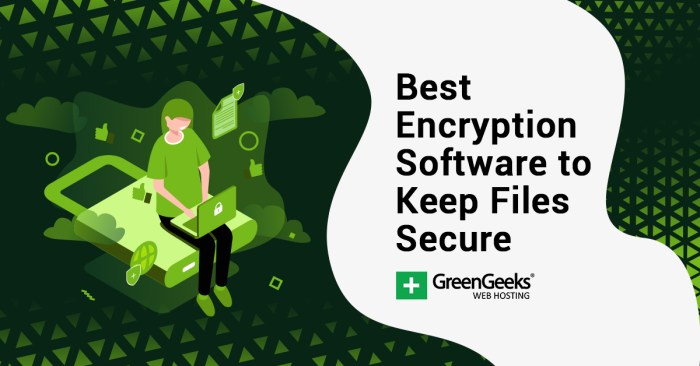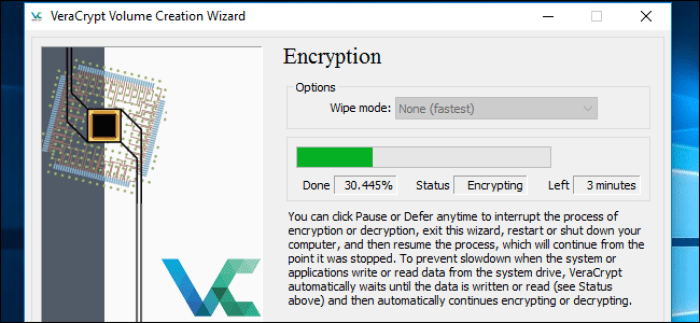In today’s digital landscape, data security is paramount. Protecting sensitive information from unauthorized access is crucial for individuals and organizations alike. One of the most effective methods to achieve this is through drive encryption, a process that renders your data unreadable without the correct decryption key. This comprehensive guide explores the best drive encryption software options available, helping you choose the solution that best fits your needs and budget.
We’ll delve into various aspects, including features, ease of use, compatibility, and security protocols.
Understanding Drive Encryption: Types and Methods
Before diving into specific software, it’s essential to understand the different types of drive encryption. The most common are:
- Full Disk Encryption (FDE): This encrypts the entire hard drive, including the operating system, applications, and user data. It provides the highest level of security, protecting all data stored on the drive. Examples include BitLocker (Windows), FileVault (macOS), and VeraCrypt.
- File-Level Encryption: This encrypts individual files or folders, allowing you to selectively protect specific data. While less comprehensive than FDE, it’s useful for protecting sensitive documents within a larger, unencrypted system. Popular options include 7-Zip with AES-256 encryption and WinRAR with similar capabilities.
- Self-Encrypting Drives (SEDs): These are hard drives with built-in encryption hardware. The encryption and decryption processes happen at the hardware level, offering fast performance and robust security. This is often a preferable option for laptops and portable devices.
Encryption methods typically utilize strong algorithms like AES (Advanced Encryption Standard) with key sizes of 128-bit, 192-bit, or 256-bit. The higher the bit size, the more secure the encryption.
Top Drive Encryption Software Options
The market offers a wide array of drive encryption software. Here’s a breakdown of some of the best options, categorized for clarity:

Source: techcult.com
Full Disk Encryption Software, Best drive encryption software
- BitLocker (Windows): Built into Windows Pro and Enterprise editions, BitLocker is a robust and reliable FDE solution. It’s easy to use for most users and integrates seamlessly with the Windows operating system. However, it may not be compatible with older hardware.
- FileVault (macOS): Apple’s built-in FDE solution for macOS, FileVault offers strong security and straightforward setup. It’s a good choice for Mac users who want seamless integration with their operating system.
- VeraCrypt: A free, open-source, and cross-platform FDE software, VeraCrypt is a popular choice for its flexibility, security, and strong community support. It’s known for its robust encryption algorithms and ability to create encrypted containers.
- DiskCryptor: Another strong open-source option, DiskCryptor is a powerful and versatile FDE tool. It offers a range of encryption algorithms and supports various operating systems. However, it might have a steeper learning curve than some other options.
File-Level Encryption Software
- 7-Zip: A widely used file archiver that supports strong encryption algorithms like AES-256. It’s free, open-source, and readily available for various operating systems. While not dedicated encryption software, it’s a convenient option for encrypting individual files and folders.
- WinRAR: Similar to 7-Zip, WinRAR is a popular file archiver that supports strong encryption. It offers a user-friendly interface and is widely compatible across platforms. It’s a paid software, but a trial version is available.
- AxCrypt: A dedicated file encryption tool that focuses on ease of use and integration with cloud storage services. It’s a good option for users who need simple file-level encryption without the complexities of full disk encryption.
Choosing the Right Drive Encryption Software: Best Drive Encryption Software
Selecting the best drive encryption software depends on several factors:
- Operating System: Ensure compatibility with your operating system (Windows, macOS, Linux, etc.).
- Encryption Type: Decide whether you need full disk encryption or file-level encryption based on your security requirements.
- Ease of Use: Consider the software’s user interface and complexity. Some options are more user-friendly than others.
- Security Features: Evaluate the encryption algorithms, key management, and other security features offered by the software.
- Cost: Many excellent free and open-source options are available, but some commercial software offers advanced features and support.
Security Best Practices with Drive Encryption
Even with strong encryption, proper security practices are crucial:

Source: greengeeks.com
- Strong Passwords: Use long, complex, and unique passwords or passphrases for your encryption keys.
- Key Management: Securely store your encryption keys. Avoid writing them down and consider using a password manager.
- Regular Updates: Keep your encryption software updated to benefit from the latest security patches and bug fixes.
- Hardware Security: Consider using SEDs for enhanced security, especially for portable devices.
- Backup your encrypted data: This ensures you can recover your data even if you lose your encryption key.
Frequently Asked Questions (FAQ)
- Q: Is drive encryption necessary? A: The need for drive encryption depends on the sensitivity of your data. If you handle confidential information, drive encryption is highly recommended.
- Q: How long does drive encryption take? A: The time required varies depending on the size of the drive and the encryption algorithm. It can range from minutes to hours.
- Q: What happens if I forget my encryption key? A: You will lose access to your encrypted data. This is why it’s crucial to securely store your key.
- Q: Can I encrypt an external hard drive? A: Yes, most drive encryption software supports encrypting external hard drives.
- Q: Is drive encryption slow? A: Modern encryption algorithms are optimized for performance, and the impact on system speed is often minimal. However, some performance reduction is expected.
- Q: Which encryption algorithm is the most secure? A: AES-256 is widely considered the most secure encryption algorithm currently available.
Conclusion
Choosing the right drive encryption software is a crucial step in protecting your valuable data. By understanding the different types of encryption, exploring available options, and following security best practices, you can significantly enhance your data security posture. Remember to select a solution that meets your specific needs and budget, and always prioritize strong password management.
References
Call to Action
Protect your data today! Download and install a reputable drive encryption software and take control of your digital security. Choose the option that best suits your needs and start safeguarding your valuable information.

Source: weebly.com
Common Queries
What is the difference between full-disk encryption and file-level encryption?
Full-disk encryption protects the entire hard drive, while file-level encryption only protects specific files or folders. Full-disk encryption offers broader protection, but file-level encryption allows for more granular control.
How do I recover my data if I lose my encryption key?
Data recovery depends on the software and the key management system used. Some solutions offer key recovery options, while others require meticulous backup strategies. Always follow the software’s instructions regarding key management and backups.
Is drive encryption slow?
The performance impact of drive encryption varies depending on the software, hardware, and encryption algorithm used. Modern encryption solutions are optimized for speed and typically have minimal impact on system performance.
What operating systems are compatible with drive encryption software?
Most drive encryption software supports a wide range of operating systems, including Windows, macOS, and Linux. However, compatibility should be verified before purchasing or installing any software.
